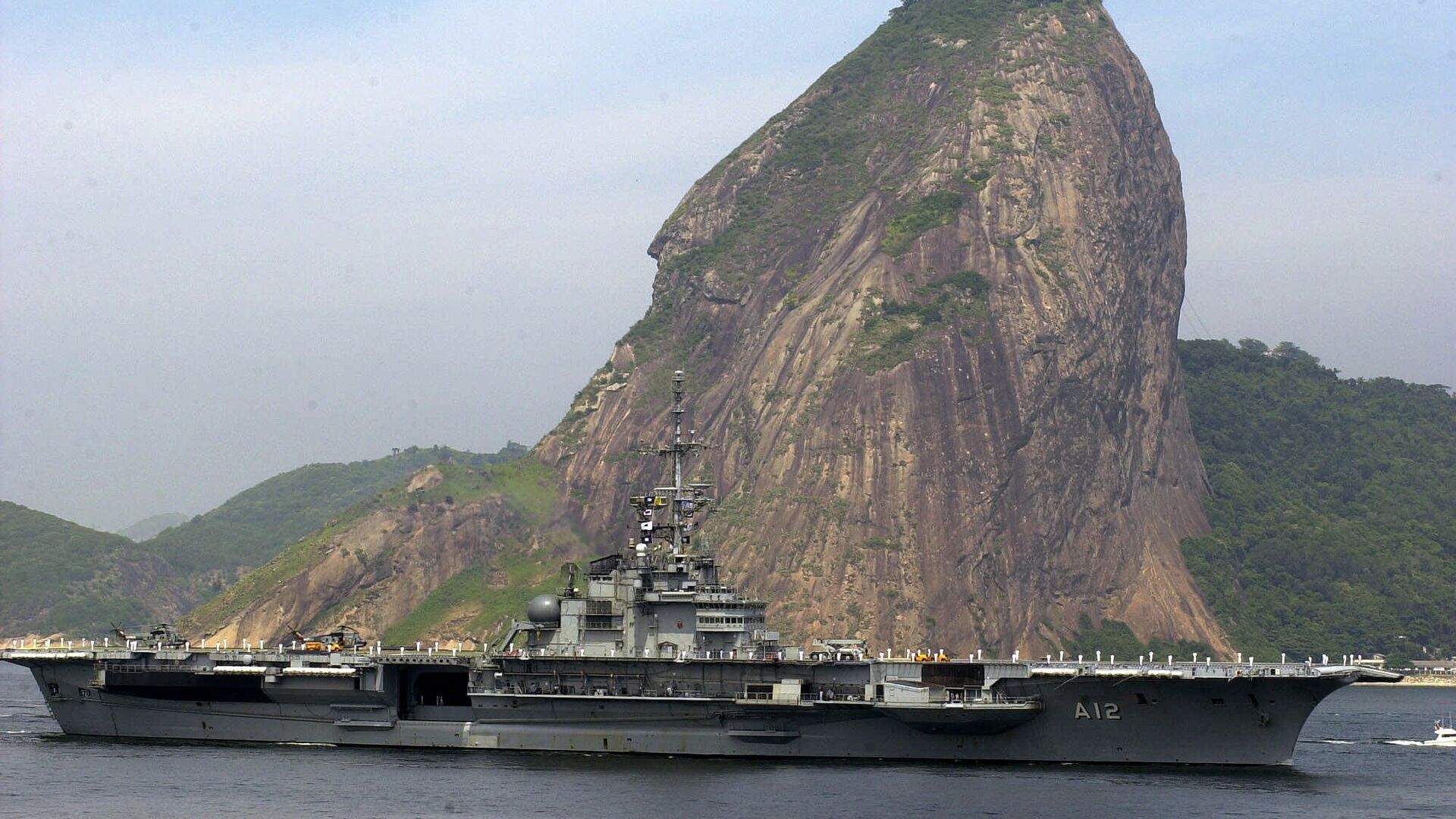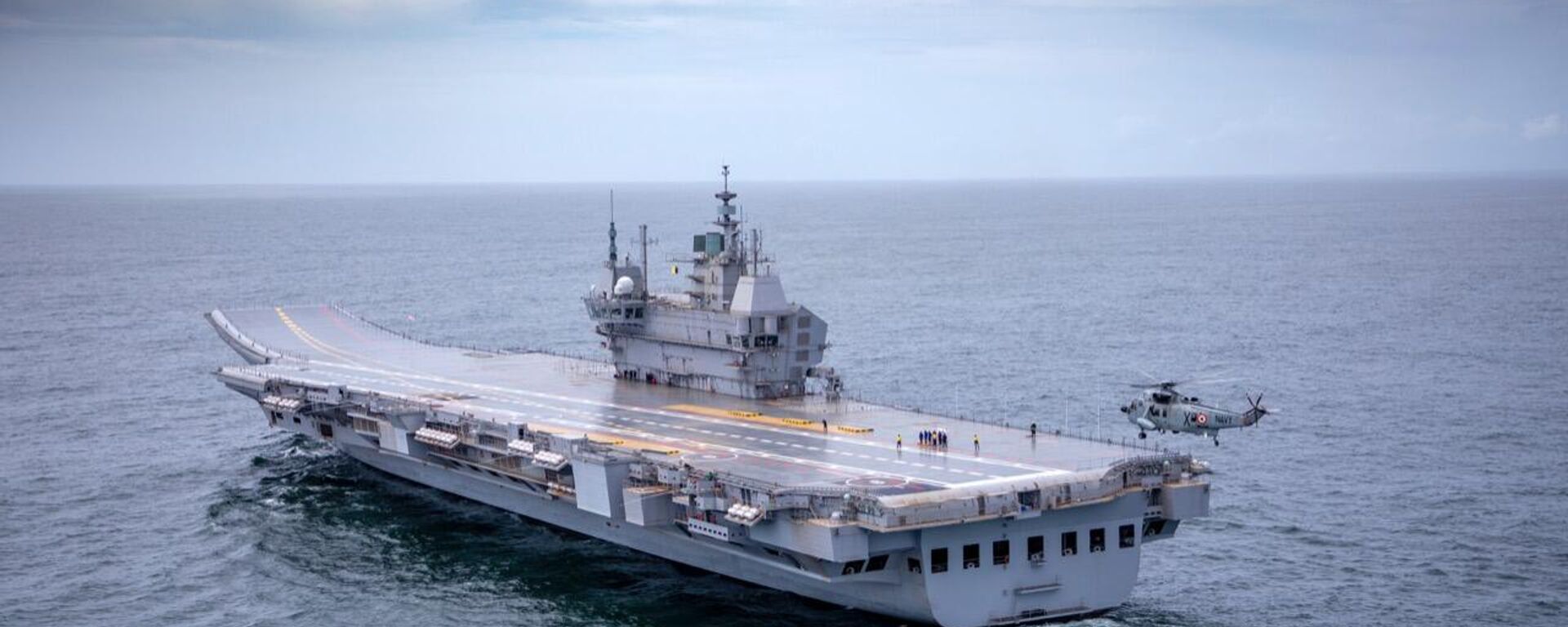https://sputnikglobe.com/20230204/brazil-sinks-its-only-decommissioned-aircraft-carrier-in-atlantic--1106971506.html
Brazil Sinks Its Only Decommissioned Aircraft Carrier in Atlantic
Brazil Sinks Its Only Decommissioned Aircraft Carrier in Atlantic
Sputnik International
Brazil has sunk the country's only decommissioned aircraft carrier Sao Paulo in the Atlantic Ocean after the vessel was denied docking due to the risk of running around, the Brazilian navy said.
2023-02-04T10:47+0000
2023-02-04T10:47+0000
2023-02-04T10:47+0000
americas
brazil
aircraft carrier
ecology
https://cdn1.img.sputnikglobe.com/img/105292/71/1052927110_0:187:2000:1312_1920x0_80_0_0_8b32ca26bf1877ecb401188b3a1b3e3c.jpg
Sao Paulo, Brazil's only aircraft carrier, was withdrawn from service in 2018 and was sold to Turkish company Sok for $1.9 million three years later. The ship's new owner towed it to Turkey, where it was supposed to be scrapped. However, Turkey denied entry. The vessel was then taken back to Brazil, but the country did not allow it to dock either, citing environmental risks and the port's security, as there was a chance that the aircraft carrier might sink uncontrollably given that its hull had some holes, with water pouring inside. In January, the Brazilian navy took over after the ship spent several months in the country's territorial waters. According to the navy's statement, the decommissioned aircraft carrier was scuttled 350 kilometers (217 miles) off the Brazilian coast in the Atlantic Ocean, at an approximate depth of 5,000 meters (16,400 feet). The area was picked with consideration of safety for navigation and the environment, fishery and ecosystems, the navy noted. Meanwhile, the Brazilian Institute of Environment and Renewable Natural Resources cast doubt on the plan's safety for aquatic organisms considering the amount of toxic material — including asbestos, chlorofluorocarbons, microplastic particles and heavy metals — aboard it. The environmental agency also noted that Italy, Norway, Denmark and Turkey had special shipyards for recycling ships, in accordance with the United Nations' International Maritime Organization and the Basel Convention.
https://sputnikglobe.com/20220729/indian-navy-reportedly-receives-first-domestically-produced-aircraft-carrier-1097933138.html
americas
brazil
Sputnik International
feedback@sputniknews.com
+74956456601
MIA „Rossiya Segodnya“
2023
Sputnik International
feedback@sputniknews.com
+74956456601
MIA „Rossiya Segodnya“
News
en_EN
Sputnik International
feedback@sputniknews.com
+74956456601
MIA „Rossiya Segodnya“
Sputnik International
feedback@sputniknews.com
+74956456601
MIA „Rossiya Segodnya“
americas, brazil, aircraft carrier, brazil sinks only aircraft carrier, ecology risks
americas, brazil, aircraft carrier, brazil sinks only aircraft carrier, ecology risks
Brazil Sinks Its Only Decommissioned Aircraft Carrier in Atlantic
MEXICO CITY (Sputnik) - Brazil has sunk the country's only decommissioned aircraft carrier Sao Paulo in the Atlantic Ocean after the vessel was denied docking due to the risk of running around, the Brazilian navy said.
"Regarding the hull of the decommissioned aircraft carrier 'Sao Paulo' … we inform that the operation of a planned and controlled sinking was carried out late in the afternoon, February 3, in strict accordance with the plan," the navy said in a statement.
Sao Paulo, Brazil's only
aircraft carrier, was withdrawn from service in 2018 and was sold to Turkish company Sok for $1.9 million three years later. The ship's new owner towed it to Turkey, where it was supposed to be scrapped. However, Turkey denied entry.
The vessel was then taken back to Brazil, but the country did not allow it to dock either, citing environmental risks and the port's security, as there was a chance that the aircraft carrier might sink uncontrollably given that its hull had some holes, with water pouring inside.
In January, the Brazilian navy took over after the ship spent several months in the country's territorial waters.
According to the navy's statement, the decommissioned
aircraft carrier was scuttled 350 kilometers (217 miles) off the Brazilian coast in the Atlantic Ocean, at an approximate depth of 5,000 meters (16,400 feet). The area was picked with consideration of safety for navigation and the environment, fishery and ecosystems, the navy noted.
Meanwhile, the Brazilian Institute of
Environment and Renewable Natural Resources cast doubt on the plan's safety for aquatic organisms considering the amount of toxic material — including asbestos, chlorofluorocarbons, microplastic particles and heavy metals — aboard it.
The environmental agency also noted that Italy, Norway, Denmark and Turkey had special shipyards for recycling ships, in accordance with the United Nations' International Maritime Organization and the Basel Convention.



